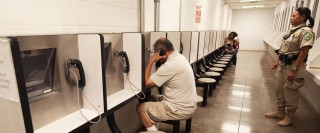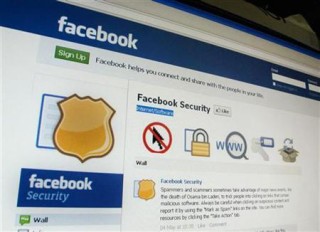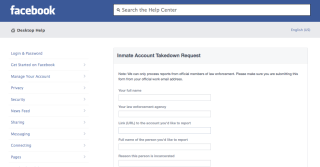2014 Parker Lecture Press Release
FCC Chairman Wheeler Highlights Need for Greater Broadband Access nd Diversity in Media Ownership
Federal Communications Commission Chairman Tom Wheeler Tuesday pledged to improve the rates of media ownership by women and persons of color during his tenure as chairman, and said he was treating the commission’s open Internet rules as “the most important decision of my term.”
Wheeler’s remarks came as he delivered the 32nd Annual Everett C. Parker Ethics in Telecommunications Lecture at the Newseum in Washington.
The event, sponsored by the United Church of Christ’s Office of Communication, Inc., was held in partnership with the Newseum Institute this year to mark the 50th anniversary of Rev. Dr. Parker’s ground-breaking petition to the FCC. The petition, filed at the height of the civil rights movement, challenged the television license of WLBT in Jackson, Mississippi, for its failure to cover its African-American viewers. The petition ultimately led the FCC to strip the station owners of their license, and established the right of individual citizens to petition the agency.
“Everett Parker fought for the free flow of information without economic obstruction,” Wheeler said. “.…The history of America is the history of unpopular ideas that came to be recognized as essential truths – from the independence of colonies, to the abolition of slavery, to the simple notion that people should not be judged on the basis of race, ethnicity or sexual orientation. This is why free expression is a value that stands at the center of our work to promote an open Internet.”
The chairman observed that the Internet also represents “an unprecedented expansion of economic opportunity. Networks have always been the backbone of economic expansion, but what is new this time is that an open Internet allows innovative economic activity to reach scope and scale at an unprecedented rate. ”
Wheeler noted that ensuring universal access to the Internet for all “will not be an easy task.” But, he added, “The costs of digital exclusion are significant for the non-connected and for our nation. Broadband is the gateway that facilitates, among other things, online learning, telework, remote health care monitoring, social networking, news and entertainment programming and economic opportunities. Like access to broadcasting in the 1960’s, access to the broadband Internet is critical to full and fair participation in our society and our economy.” Tom Wheeler remarks as prepared for delivery.
At the event, Makani Themba, executive director of The Praxis Project, received the Everett C. Parker Award in recognition of her many years of leadership and support for promoting the public interest in telecommunications and the media.
Themba described Rev. Parker as one of her heroes, asserting, “there can be no justice when people are silent.” Themba recited the names of African-Americans whose deaths had made headlines–in the civil right era and in recent months, then added, “There are so many names we don’t even know. And they number into the millions, over centuries, as we are reminded over and over again that for people of color in this country, our lives are cheap. Continuing the legacy of Rev. Parker is to break the complicity of media–especially news media–with our dehumanization. Of course, media bias does not pull the trigger, but it does help paint a target on our backs.” Makani Themba remarks as prepared for delivery.
California Public Utilities Commissioner Catherine J.K. Sandoval received the Donald H. McGannon Award for her contributions in advancing the roles of women and persons of color in the media. Sandoval directed the FCC‘s Office of Communications Business Opportunities in the late 1990s before becoming the first Latino member of the CPUC.
Sandoval recalled that as a 6-year-old living in a trailer park in Los Angeles, television “ignited my dreams to be a lawyer,” bringing images of leaders such as Supreme Court Justice Thurgood Marshall into her home. In her remarks, Sandoval described how bringing telephone service to previously unserved parts of the Yurok tribe’s reservation in California—”where the nearest cell phone service is 45 minutes away”—had enabled residents to alert emergency personnel to a wildfire outbreak and brought news to a blind member of the tribe.
The event was livestreamed by the Newseum Institute. An archived video will be available at www.newseum.org.
The Parker Lecture was created in 1982 to recognize the founder of OC, Inc., and his pioneering work as an advocate for the public’s rights in broadcasting. The event is the only lecture in the country to examine telecommunications in the digital age from an ethical perspective. More information is available at www.uccmediajustice.org/parker.
This year’s lecture was held in conjunction with the Newseum’s three-year exhibit “Civil Rights at 50,” chronicling major developments in the civil rights movement from 1963 to 1965 through news media reports.
The Cleveland-based United Church of Christ, a Protestant denomination with more than 1 million members and nearly 5,200 local congregations nationwide, recognizes the unique power of the media to shape public understanding and thus society as a whole. For this reason, the UCC‘s OC, Inc. has worked since its founding in 1959 to create just and equitable media structures that give a meaningful voice to diverse peoples, cultures and ideas.
The Newseum Institute provides a forum for educational programs and thought-leadership initiatives, as well as educational materials, addressing the five freedoms of the First Amendment: speech, press, religion, assembly, and petition. The Newseum’s 250,000-square-foot museum in downtown Washington, D.C., offers visitors a state-of-the-art experience that blends news history with up-to-the-second technology and hands-on exhibits.
###
United Church of Christ, Office of Communication, Inc.
Cheryl A. Leanza,
media contact
202–904-2168
cleanza@alhmail.com





